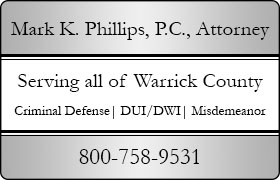Warrick County, IN White Collar Crime Lawyers, page 5
Sponsored Law Firm
-
 x
x

Click For More Info:
-
Law Offices of Mark K. Phillips
114 South Third Street P.O. Box 427 Boonville, IN 47601» view mapDUI-DWI, Criminal Defense, Personal Injury Top Rated Indiana DUI Defense Lawyer
I offer passionate, loyal and fierce representation. I have over 20 years of experience to fight your Indiana DUI charge. I offer a free, initial consultation.
800-291-416 -
- Contact
- Free Consultation
- Visit:
- Website
- Profile
Not enough matches for Warrick White Collar Crime lawyer.
Below are all Warrick lawyers.
Arin Kelli Norris
Mediation, Estate Planning, Family Law, Child Custody
Status: In Good Standing Licensed: 24 Years
Mark Hart Hendrickson
Traffic, Immigration, Estate Planning, Employment
Status: In Good Standing Licensed: 47 Years
 Mark K. Phillips Boonville,Indiana
Mark K. Phillips Boonville,Indiana About UsMark K. Phillips
About UsMark K. Phillips Contact UsCall or Email Now
Contact UsCall or Email Now
